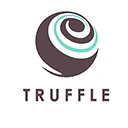Using external libraries in your Truffle project can significantly enhance functionality and reduce development time. However, improper use can lead to increased gas costs and compilation time. Here are several strategies to optimize the use of external libraries:
1. Choose Libraries Wisely
Before integrating an external library, evaluate its necessity and efficiency. Use well-established libraries that are actively maintained and optimized for performance, such as OpenZeppelin.
Example:
npm install @openzeppelin/contracts2. Import Only What You Need
Instead of importing the entire library, import only the specific functions or contracts you need. This reduces the amount of code compiled and can save gas costs.
Example:
import "@openzeppelin/contracts/token/ERC20/ERC20.sol"; // Import only the ERC20 contract
3. Use Libraries as Interfaces
When using libraries, consider defining them as interfaces. This allows you to interact with the library without including the entire implementation, which can save on gas.
Example:
interface ICalculator {
function add(uint256 a, uint256 b) external pure returns (uint256);
}
contract MyContract {
ICalculator calculator;
constructor(address _calculator) {
calculator = ICalculator(_calculator);
}
function calculateSum(uint256 a, uint256 b) public view returns (uint256) {
return calculator.add(a, b);
}
}4. Optimize Library Functions
When using library functions, ensure they are optimized for gas efficiency. Avoid using functions that involve complex calculations or loops when simpler alternatives exist.
Example:
library Math {
function multiply(uint256 a, uint256 b) internal pure returns (uint256) {
return a * b; // Simple multiplication
}
}
contract MyContract {
using Math for uint256;
function calculate(uint256 a, uint256 b) public pure returns (uint256) {
return a.multiply(b); // Using optimized library function
}
}5. Avoid Redundant Calls
When using library functions, avoid making redundant calls. Store results in memory or state variables if they will be reused, instead of calling the function multiple times.
Example:
contract MyContract {
using Math for uint256;
function calculate(uint256 a, uint256 b) public pure returns (uint256) {
uint256 result = a.multiply(b); // Store result to avoid redundant calls
return result;
}
}6. Test and Benchmark
Always test and benchmark the gas costs of your contracts with and without the library. Use Truffle's built-in profiling tools to analyze the performance impact of the library.
Example:
truffle test --profile // Run your tests to see gas usage and performance metrics
7. Keep Libraries Updated
Regularly update your external libraries to benefit from performance improvements and optimizations made by the library maintainers.
Example:
npm update @openzeppelin/contracts // Update the OpenZeppelin contracts to the latest version
Conclusion
By following these strategies, you can optimize the use of external libraries in your Truffle projects, leading to more efficient contracts and reduced gas costs. Always evaluate the necessity of each library, import only what you need, and keep your codebase clean and efficient.

